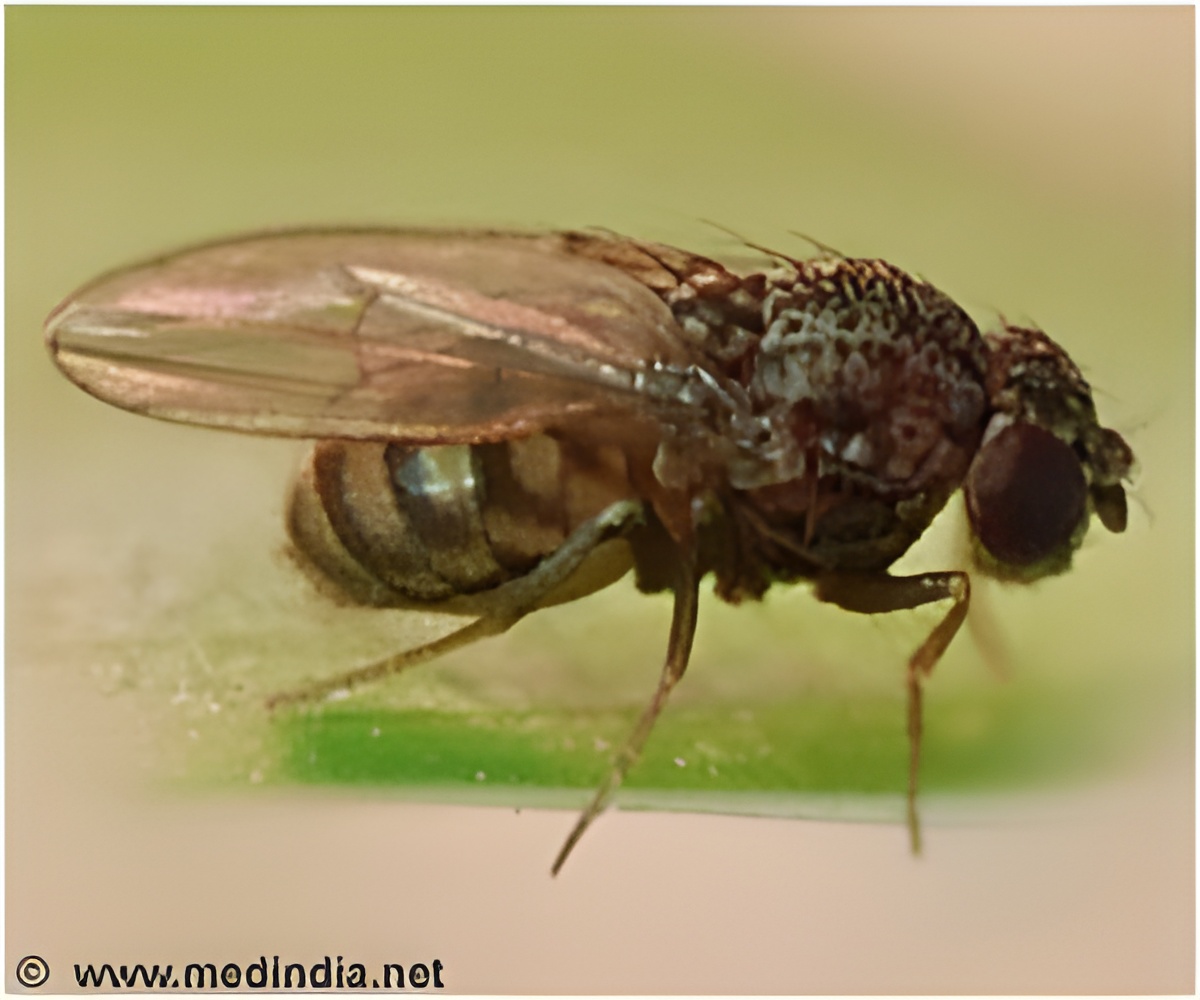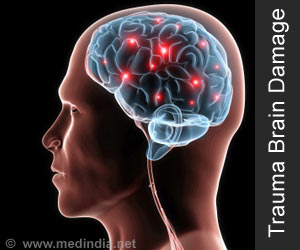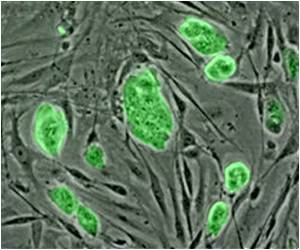In the Current Biology study, researchers have found that a small group of neurons in the abdominal nerve cord and reproductive tract—called Abdominal-B neurons—is necessary for the female to pause her movement and interact with a courting male.

In another Neuron paper, researchers studied the effects of a small protein called sex peptide that is transferred along with sperm from males to females and is detected by sensory neurons in the uterus. Sex peptide changes the female's behavior so that she is reluctant to mate again for about10 days. The investigators traced the neuronal pathway that is modulated when the uterus's sensory neurons detect sex peptide.
"Thanks to our work, we think the sex peptide signal goes to a region of the fly's brain that is the homolog of the hypothalamus, which has been know for many years to be central in controlling sexual receptivity in vertebrates," explains co-lead author Dr. Mark Palfreyman of the Research Institute of Molecular Pathology in Vienna, Austria. This region of the brain links the nervous system to the endocrine, or hormonal, system. "Of course, these models will still need to be tested and our work only provides an initial glimpse, but our study opens the possibility that analogous neuroendocrine systems control sexual receptivity from flies to vertebrates," adds senior author Dr. Barry Dickson, who was also a co-author on the Current Biology paper published by Dr. Vosshall.
Source-Eurekalert











